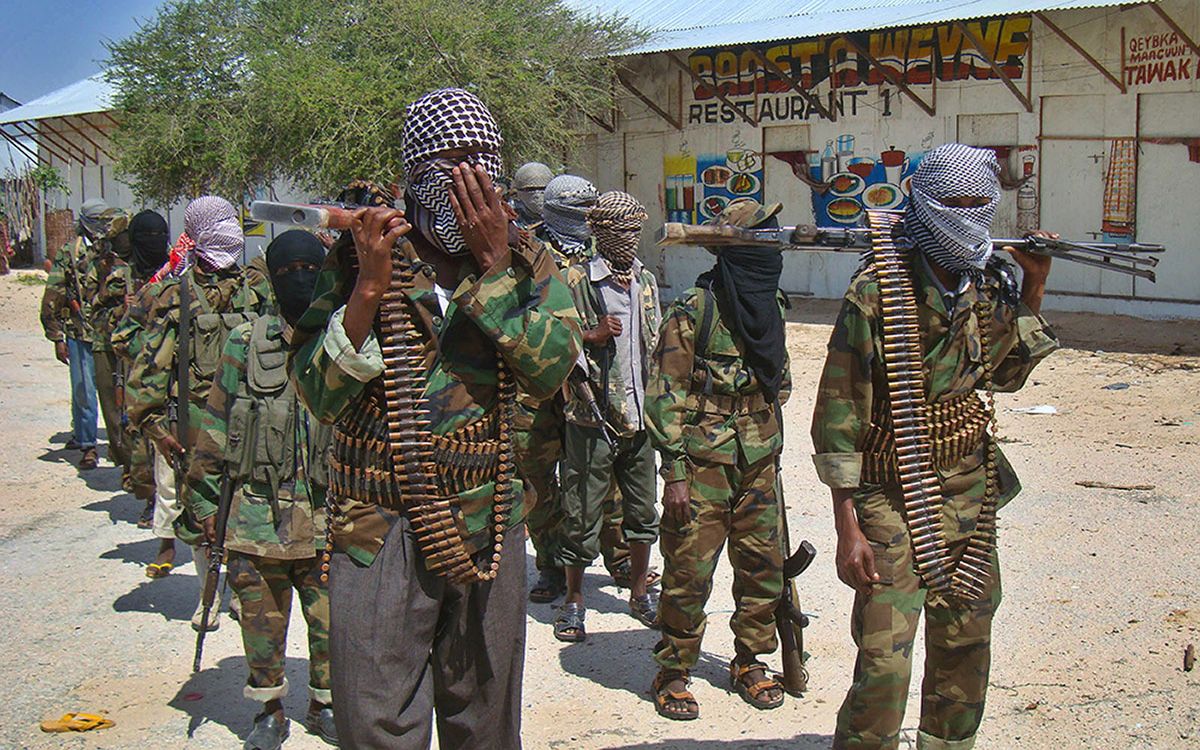
The Al-Ansar Insurgency has been a significant conflict in recent history, impacting numerous lives and shaping geopolitical landscapes. This insurgency, primarily based in the Middle East, involves various militant groups with complex motivations and alliances. Understanding this conflict requires delving into its origins, key players, and the socio-political environment that fuels it. Why does the Al-Ansar Insurgency matter? Because it highlights the intricate web of regional politics, religious ideologies, and international interventions. From its inception to its current state, this insurgency offers a window into the challenges of modern warfare and peacekeeping. Here are 25 facts that will help you grasp the essence of the Al-Ansar Insurgency.
Key Takeaways:
- The Al-Ansar Insurgency began in the early 2000s in the Middle East, fueled by local grievances and supported by sympathetic donors. It advocates for an Islamic state and has impacted civilians and global politics.
- The insurgency's key figures, major events, and ideological foundations have shaped its evolution. Its tactics have evolved, impacting civilians and prompting international responses.
Origins of the Al-Ansar Insurgency
The Al-Ansar Insurgency has roots that trace back to complex socio-political dynamics. Understanding its beginnings helps in grasping the broader context.
- The Al-Ansar Insurgency began in the early 2000s, primarily in the Middle East.
- It was initially fueled by local grievances against government corruption and lack of services.
- The group’s name, "Al-Ansar," means "The Supporters" in Arabic, symbolizing their mission to support oppressed communities.
- Early funding came from sympathetic local businessmen and foreign donors.
Key Figures in the Movement
Several individuals have played pivotal roles in shaping the insurgency. Their actions and ideologies have significantly influenced the group's direction.
- The founder, Abu Khalid, was a former military officer disillusioned with his government.
- Abu Khalid’s charismatic leadership attracted many followers from various backgrounds.
- Another key figure, Fatima al-Zahra, became known for her strategic acumen and organizational skills.
- Fatima’s efforts in recruiting and training new members were crucial to the group’s expansion.
Major Events and Milestones
The insurgency has seen numerous significant events that have marked its evolution. These milestones highlight both its growth and the challenges it has faced.
- In 2005, the group carried out its first major attack on a government building.
- The 2008 ceasefire agreement was a turning point, although it was short-lived.
- A major offensive in 2012 led to the capture of several key cities.
- The insurgency faced a significant setback in 2015 when a major leader was captured.
Ideological Foundations
The beliefs and principles guiding the Al-Ansar Insurgency are deeply rooted in a mix of political and religious ideologies.
- The group advocates for the establishment of an Islamic state governed by Sharia law.
- They oppose Western influence in their region, viewing it as a form of neocolonialism.
- Social justice and economic equality are also central to their ideology.
- The insurgency promotes a return to traditional values and practices.
Tactics and Strategies
The methods employed by the insurgency have evolved over time, reflecting changes in leadership and external pressures.
- Early tactics included guerrilla warfare and hit-and-run attacks.
- Over time, they have adopted more sophisticated methods, including cyber warfare.
- Propaganda has been a key tool, with the group using social media to spread their message.
- They have also engaged in negotiations and alliances with other militant groups.
Impact on Civilians
The insurgency has had a profound effect on the civilian population, with both positive and negative consequences.
- Many civilians have been displaced due to the ongoing conflict.
- Some communities have benefited from the group’s social programs and services.
- However, there have been numerous reports of human rights abuses committed by the insurgents.
- The conflict has also led to significant economic disruption in affected areas.
International Response
The global community has reacted in various ways to the Al-Ansar Insurgency, from condemnation to attempts at mediation.
- Several countries have designated the group as a terrorist organization, imposing sanctions and travel bans on its members.
Final Thoughts on Al-Ansar Insurgency
The Al-Ansar Insurgency has left a significant mark on modern history. Understanding the key events and figures involved helps us grasp the complexities of this conflict. From its origins to its impact on global politics, the insurgency has shaped many aspects of today's world. The strategies and tactics used by both sides offer lessons in both military and diplomatic arenas. By examining these facts, we gain a clearer picture of the challenges faced and the resilience shown by those involved. This knowledge not only informs our understanding of past conflicts but also prepares us for future challenges. The Al-Ansar Insurgency serves as a reminder of the importance of awareness and education in addressing global issues.
Frequently Asked Questions
Was this page helpful?
Our commitment to delivering trustworthy and engaging content is at the heart of what we do. Each fact on our site is contributed by real users like you, bringing a wealth of diverse insights and information. To ensure the highest standards of accuracy and reliability, our dedicated editors meticulously review each submission. This process guarantees that the facts we share are not only fascinating but also credible. Trust in our commitment to quality and authenticity as you explore and learn with us.
